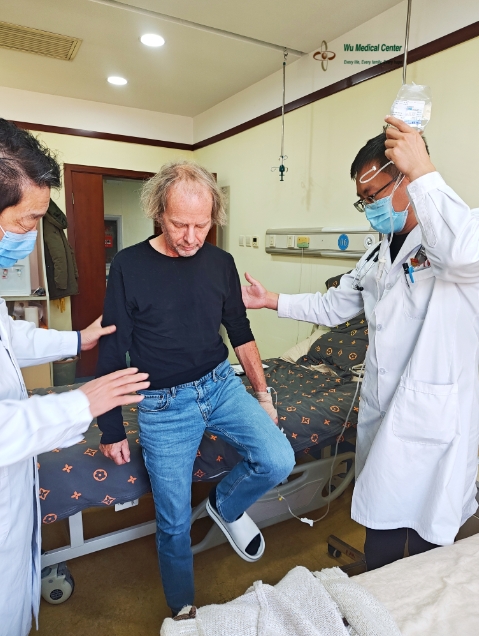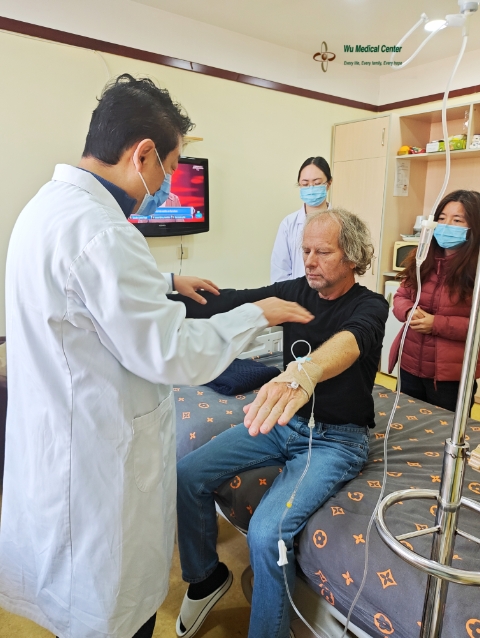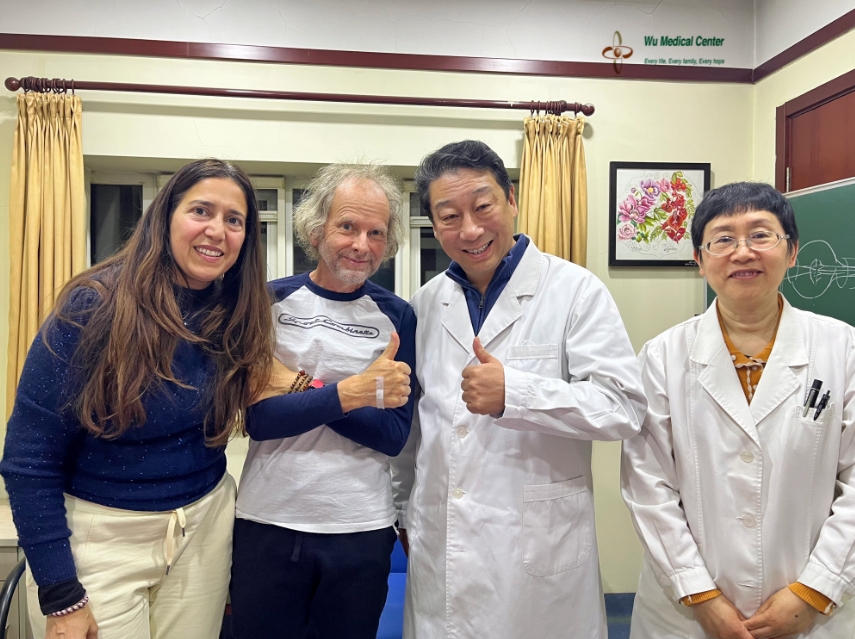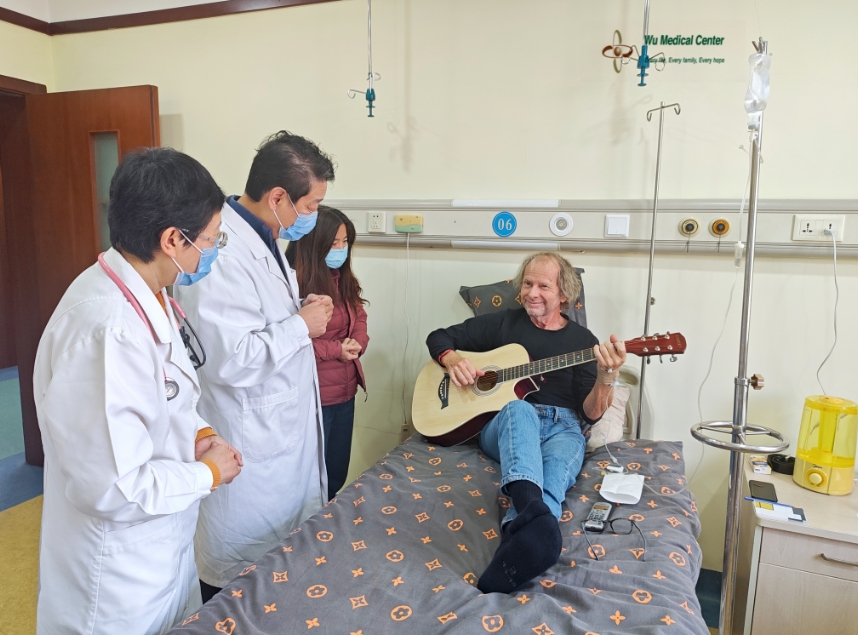Robert Theo De Winter-Amyotrophic lateral sclerosis (ALS)-(Netherlands)
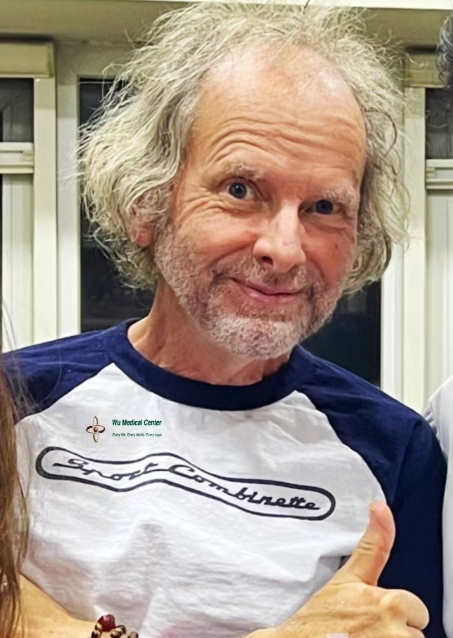 Patient Name: Robert Theo De Winter
Patient Name: Robert Theo De Winter
Gender: Male
Age: 62 years
Nationality: Netherlands
Diagnosis: Amyotrophic lateral sclerosis (ALS)
Condition upon Admission:
The patient was admitted primarily for "progressive speech weakness accompanied by swallowing difficulties for over 6 months and weak chewing ability for 1 month," diagnosed with "Amyotrophic Lateral Sclerosis." Main symptoms include progressive dysarthria and dysphagia, sialorrhea, slight weakness in the lower limbs, and preserved respiratory function. He has been treated with Riluzole with no observed effect.
Physical Examination upon Admission:
The patient’s heart rate was 58 beats per minute, respiratory rate 20 breaths per minute, blood pressure 102/68 mmHg, height 168 cm, weight 56 kg, and blood oxygen saturation 95%. He was normally developed but emaciated. There was mild cyanosis of the lips. His chest expansion was slightly reduced, and no significant dry or moist rales were heard. His heart sounds were faint and rhythmic, with no significant murmurs in each valve area. His abdomen was soft, and his liver and spleen were not palpable below the costal margin. There was no edema in his lower limbs.
Neurological Examination:
The patient is alert and in good spirits. His speech was markedly unclear; he needed to pause 2-3 times due to insufficient airflow while counting from 1 to 10. His memory and calculation abilities were normal. His eye movements in all directions were flexible. There was significant atrophy of the facial and temporal muscles. He could not extend his tongue to his lips, indicating tongue muscle atrophy. He had weak chewing ability and poor swallowing function, able to eat soft foods slowly and drink small sips of water, but he easily choked. He exhibited weak elevation of the soft palate bilaterally. His neck was supple, and the strength of the neck and shoulder muscles was generally grade 5. The proximal and distal muscle strength of his both upper limbs, as well as grip strength in the left hand, was grade 5-, though there are fasciculations in his both upper limbs. The muscle strength in his both lower limbs was grade 4+, with a slightly slower speed in standing up from the bed and sofa, maintaining single-leg standing for about 5 seconds. His tendon reflexes were diminished, and pathological signs were negative. His deep and superficial sensations were normal. He performed the alternating hand test, finger-to-finger test, and finger-to-nose test with satisfactory completion. The heel-knee-shin test was also performed adequately on both sides.
Treatment Process:
The patient was definitively diagnosed with "Amyotrophic Lateral Sclerosis" upon admission. During his hospital stay, he received neural stem cell therapy to repair motor nerve damage, and mesenchymal stem cells were used to enhance neurotrophic, endocrine, and immune support. He was also assisted with medications such as Edaravone, Riluzole, and neurotrophic factors as part of a CAST treatment regimen, along with comprehensive rehabilitation therapy.
Post-Treatment:
The patient experienced improvements in chewing and swallowing functions, with increased speed and quantity of food intake; his sialorrhea decreased. His voice volume increased and his speech articulation became clearer, with no significant pauses while counting from 1 to 10. He was able to extend his tongue 1-2 centimeters beyond his lips, and the mobility of his tongue improved. His limb motor function improved: the muscle strength in his both upper limbs reached grade 5, and the muscle strength in his both lower limbs was also largely at grade 5. He was able to maintain single-leg standing for approximately 10-15 seconds on both sides, and his speed of standing up from a seated position increased. His energy and physical endurance improved.
